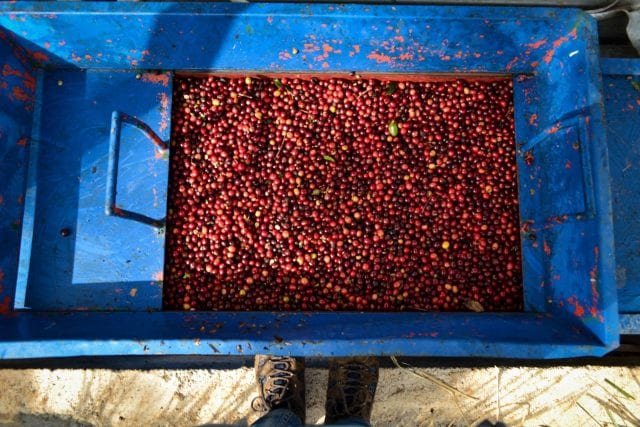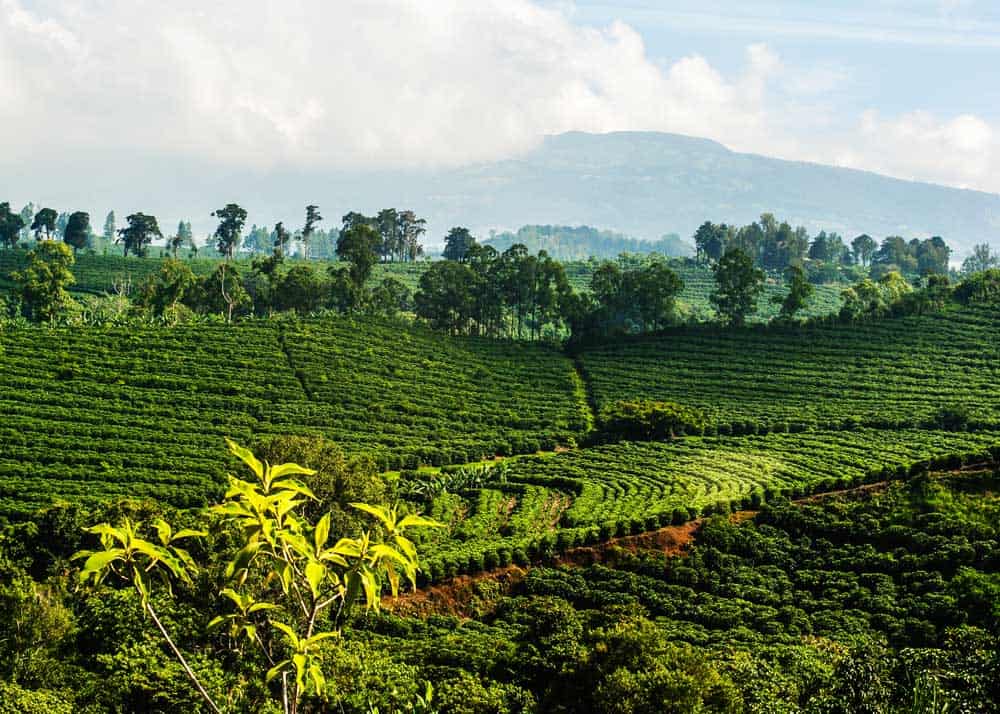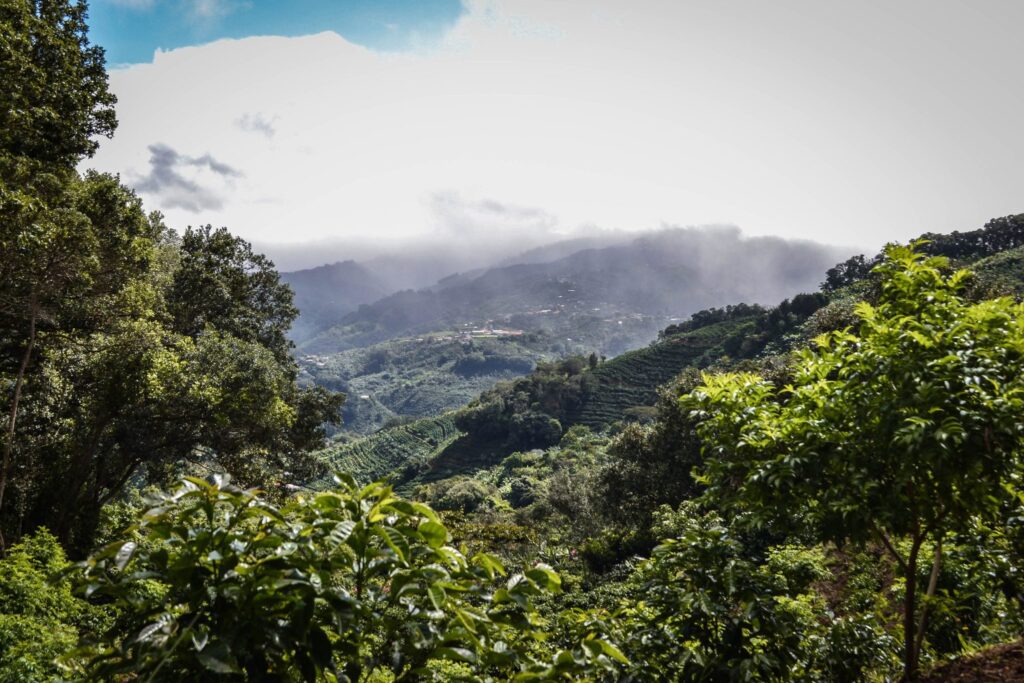You might have heard of terroir in wine. Did you know that terroir is also used to describe coffee? In this post, you’ll learn what terroir coffee is and the factors affecting it’s flavor and aroma.
A Guide to Terroir Coffee
Coffee is known for unique flavor notes across bean types and growing locations. Coffee terroir describes the factors that affect it’s flavor and aroma.
Let’s start with the basics. “Terroir” comes from French and is most used, in English, when talking about wine. The word literally means soil, dirt; whatever you think around the soil is terroir.
But when we speak about agriculture, it gets more complex. It can be defined as “specific characteristics of soil composition; temperature; rain; micro, macro, and mesoclimate; and particular cultural procedures applied to agriculture.”
If a coffee bean has terroir, it is specifically located. The unique set of circumstances (climate, soil, terrain, and sometimes tradition) forms a unique fingerprint that tags that terroir to that specific location.
That coffee (with it’s flavor and aroma combination) cannot be grown anywhere else. Coffee terroir amplifies the already present features of the variety.
What Affects Coffee Terroir?
There are three main factors that affects coffee terroir:
- Soil: The nutrients in the soil and it’s drainage both affect the terroir of coffee. Coffee plants grown in volcanic soil of Hawaii produce a terroir distinct from that of the highlands of central Kenya.
- Climate: The amount of rain and sun that coffee plants get directly affect the flavor notes in the beans.
- Terrain (Elevation): Higher elevation produces sweeter and higher quality coffee cherries. This is the same as with grapes.

Other Factors Affecting Coffee Terroir
Because of all of these factors, coffee terroir is specific to each region. It is terroir that makes coffee from Honduras distinct from Ethiopian Yirgacheffe. And why Kenyan flavor notes differ from coffee from Costa Rica.
Besides that, because climate can be highly variable, the terroir of a specific region can change from one season to the next. The amount of rainfall or hours of sunshine can impact the growth and size of the coffee cherries.

How Important is Terroir in Coffee?
So after all of this, just how much does terroir matter for coffee? Probably not that much – at least in comparison to wine. The method of processing and roasting will impact flavor more than the specific terroir. Processing can definitely triumph over the terroir if you know what you are really doing. This is the method by which the coffee seeds, or beans, are removed from the cherry flesh. Depending on how the coffee is picked, fermented, dried, and stored, processing may add flavours – some positive, some negative. It can improve a coffee’s quality or reduce it.
So while knowing which regions are known for which flavor notes is helpful, having an amateur process and roast your beans can unravel all of this. Of course, most coffee is actually processed and roasted by experts.



